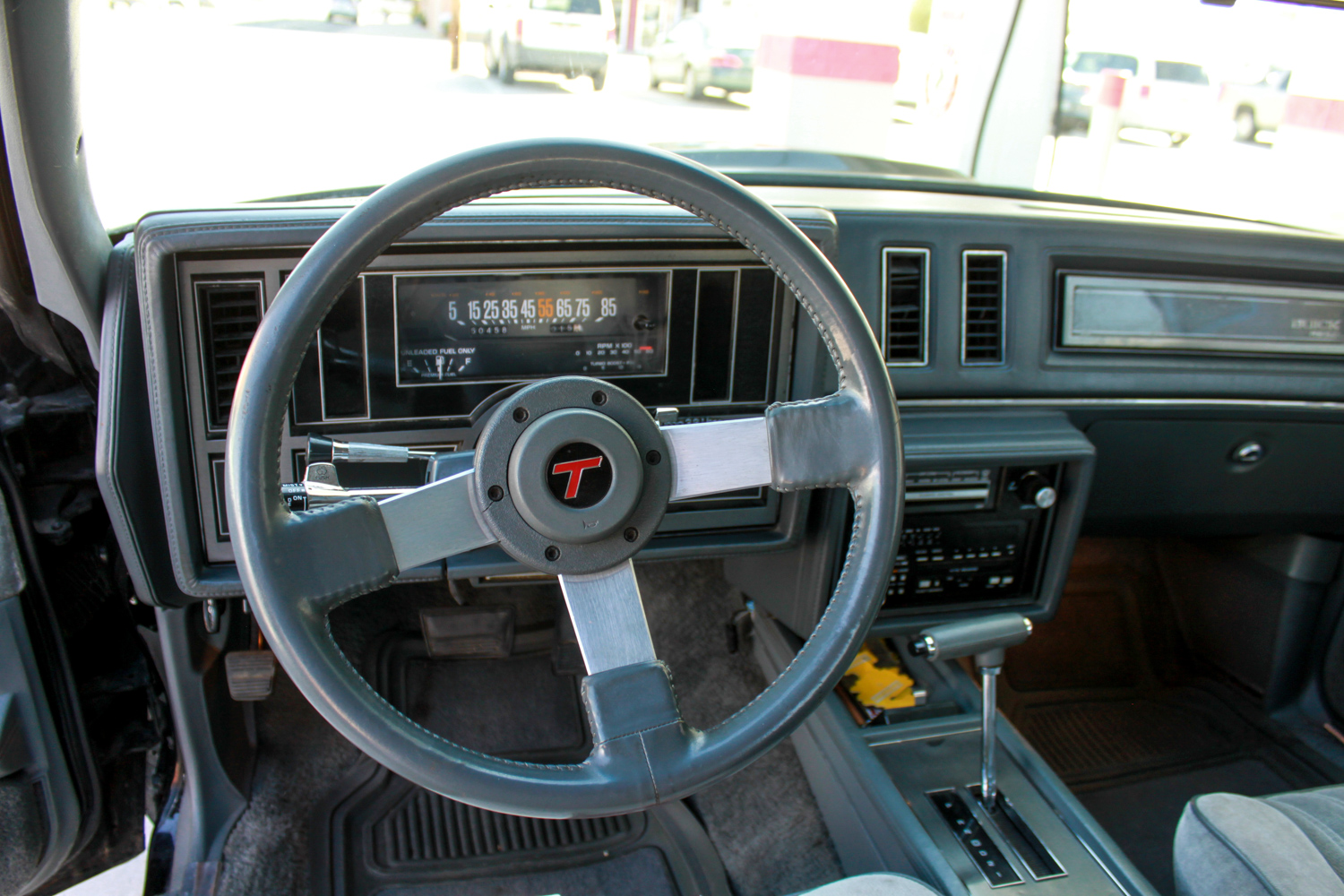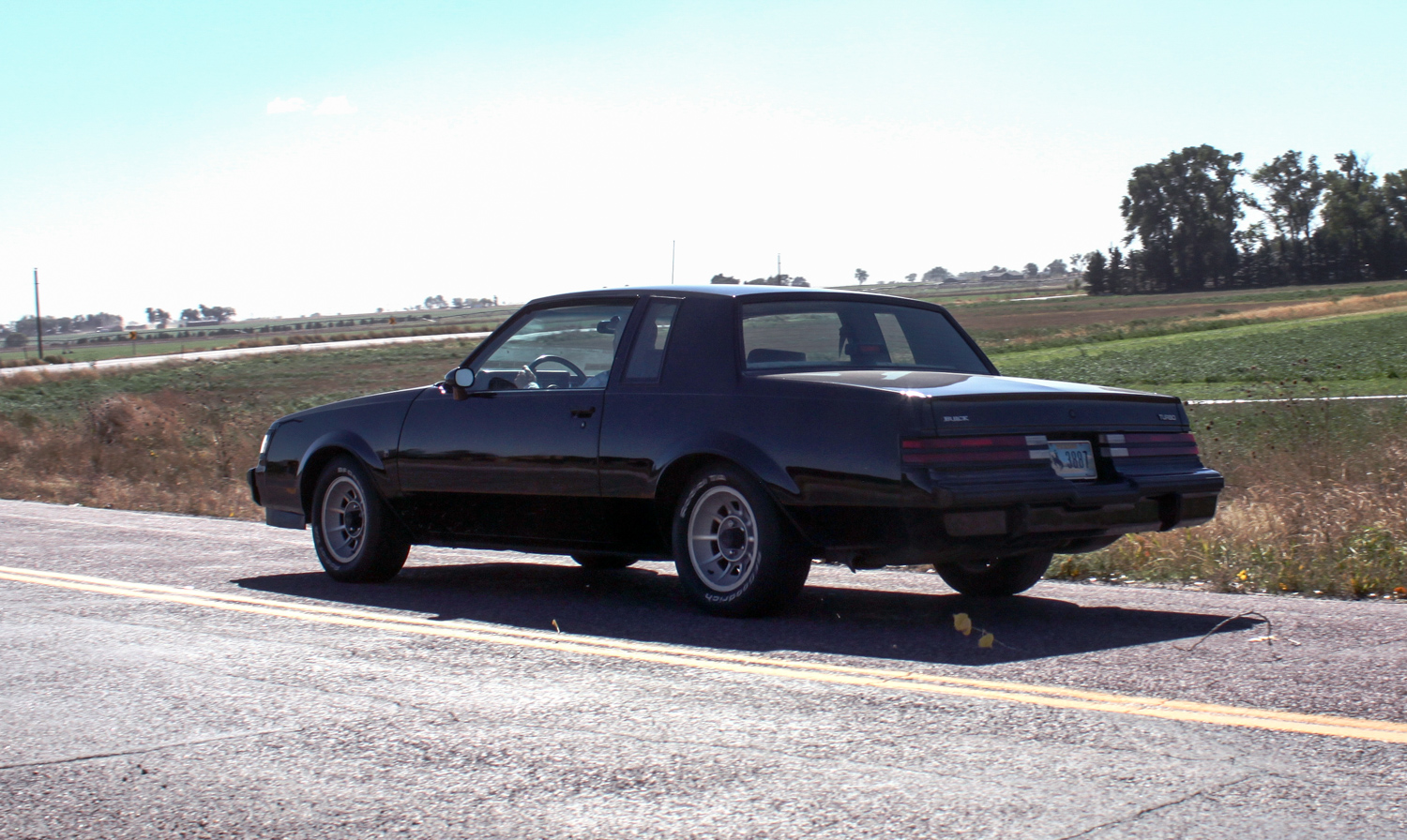1986 Buick Grand National Turbo Specs

In the 1980s, the Buick Regal Grand National captured muscle car enthusiasts' attention with a quarter-mile time that beat a Camaro, multiple NASCAR wins, and an affordable purchase price. Yet, despite all the buzz the Grand National created, the often-forgotten turbo-T model was even lighter and faster. It was built during the last hurrah for Buick muscle cars, and taking a ride in 2018 proves these cars are just as good as fans remember.
Heading north out of Torrington, Wyoming, Pat Lenhart, a former rancher and Vietnam vet, finds an open stretch of road and puts his foot to the floor of his 1987 Buick Regal turbo-T. The 245-hp, 3.8-liter turbocharged V-6, known as the "little V-6," pauses momentarily allowing the turbo to charge and then unleashes a torrent of power. Screaming along, the speedometer needle rattles against the edge of the horizontal cluster desperately trying to show the true speed. It reads just over 85 mph, but it is lying. The blurring, rapidly disappearing country landscape reveals the truth. With a big grin on his face, he slows down the car and it proceeds to ride like grandma's big Buick from years ago. For a 1987 model, the speed, ride comfort and quietness of the cabin is simply remarkable.
"It rides like a Buick, is really responsive with the little 3.8-liter, good on gas mileage and will blow the doors of most cars," Lenhart said. "They were way ahead of themselves and were called the 'Vette getters' because they would beat the Corvettes. The Corvette owners were quite upset back then, since they paid twice the money for their car compared to the Buicks."
Being such a powerful car that was cheaper than a Corvette, the Buick Grand National seemed a big winner for the brand. But however incredible it might seem to car fans today, Buick was more than a little reluctant to build it in the first place.
Buick flexes its Regal racing muscle




It all started when Buick redid the Regal in 1981, resulting in much better aerodynamics. NASCAR racers caught on quickly and Richard Petty drove a 1981 Buick Regal to victory at the 1981 Daytona 500. The car became so popular it would win a majority of the races in 1981 and 1982 as well as manufacturer's titles in those same years. This was a major boost to Buick sales; proving the win on Sunday, sell on Monday maxim.
Riding that mantra, the Grand National was born, borrowing from the official name of the series – NASCAR Winston Cup Grand National Series.
At the time Buick only intended to build 100 units, but an aftermarket company named Cars and Concepts of Brighton, Michigan, retrofitted 215 Regal models with the Grand National package. They helped build the boom around the car, and it didn't hurt that the 1984 Buick Regal Grand National sported a standard turbocharged 3.8-liter V-6 that could go toe to toe with the V-8 engines of the time. Once performance enthusiasts figured out the Regal was nearly two seconds faster than the Chevy Camaro, the Grand National cemented its place in automotive history.
The turbo-T finds a niche

Then, in 1987, the lightweight WE4 (turbo-T) option arrived. The turbo-T slotted between the Grand National and the famous GNX (Grand National Experimental) in the Regal lineup. The differences between the cars amount to interior styling, wheels, exterior badging, aluminum bumper supports, and aluminum rear drum brakes. But swapping in the aluminum for the heavier cast iron made the WE4 turbo-T lighter and faster.
It had no electric windows or seats, just power locks and—surprisingly—air conditioning.
Buick produced 1547 turbo-T models, 20,193 Grand Nationals and 547 GNXs, and the turbo-T is the lightest one of the bunch. The limited-production car was faster in the both 0-60 sprint and quarter-mile than the Grand National, but still behind the mighty GNX.
Like its performance on the drag strip, the turbo-T was gone from showrooms sooner than you'd think. In 1988, Buick changed the Regal to a new body style, opted for a front-wheel drive configuration, and killed the performance models. The Grand National was no more.
A man finds the Buick Regal of his dreams



Lenhart is a big muscle car fan, but the car's rarity meant he didn't know about it. And around Wyoming, most everything you see out on the road is a pickup.
"I just missed these or I would have got one at the time," Lenhart said with a chuckle. "They were affordable back then as a $17,000 car."
He finally discovered it sitting on the street in March, 2011 and, already the owner of three Buick Regals, immediately spotted the small T badges on the front fenders. Those badges, along with the one on the steering wheel, are the only indication the Buick Regal is a turbo-T model.
"I went home, told my wife about it and showed her the facts and figures book on Buick Regals," Lenhart said. "She said you better go get it before somebody else does."
Shortly after the sale on March 16, 2011, Lenhart had to see how powerful the car really was.
"I took it up to Douglas, WY (home of a now closed drag strip) to see what it would do," Lenhart said. "It did the same time and MPH as a 1967 427 (engine) Chevy Corvette at sea level. I did it at 4860 feet. I'm pretty good with it.

Plus, I get 25 miles per gallon, maybe 26 or 27 if you keep your foot out of it."
The "air-conditioned hot rod," as Lenhart calls it, weighs about 3300 pounds. That's slightly heavier than his 1978 Regal, but he says the '78 just doesn't perform like the turbo-T.
Lenhart attributes the fuel economy to a 200R4 automatic transmission with overdrive and the aerodynamic body style. Combined with traction control, the car is quite the performer for both efficiency and power.
"It takes off with the traction control, but once the turbo kicks in at second gear, it is a different story," Lenhart said with a smile. "It doesn't just chirp the tires, it breaks them loose!"





1986 Buick Grand National Turbo Specs
Source: https://www.hagerty.com/media/car-profiles/buick-regal-turbo-t-was-fast/








Tidak ada komentar:
Posting Komentar